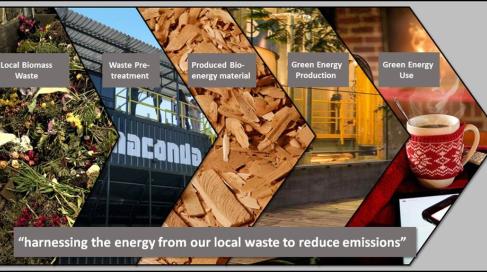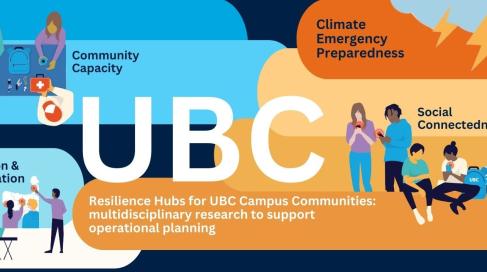Collaborations

Inventing together
Campus as a Living Lab is a framework that enables researchers, students, operations staff and external partners to collaborate on projects that address our most urgent sustainability challenges. Generally, living labs provide a collaborative approach to the development of innovations, applied in a real-world setting. The participants in each living lab project all have a vested interest in the outcome, or benefit from it in others ways.
Collaborators are considered equal partners, have a voice in decision-making, contribute to the development and implementation of solutions, and make use of the outcomes of the project. The specific structure of the collaborations and roles of the participants is determined within the context and based on the needs of a specific project.
Our values
Our work is guided by a set of core values, in addition to the values laid out in UBC’s Strategic Plan, Shaping the Next Century.

1. Sustainability
We support and develop projects that contribute to ecological, social and economic sustainability, address the climate and biodiversity crises, and are aligned with the long-term strategic vision for the UBC campus and its community.

2. Equity and Inclusion
We embed justice, equity, diversity and inclusion in all our projects and in our engagement with UBC community members and external partners.

3. Transparency
We build collaborations and partnerships through clear and open processes, and ensuring fair, ethical, consensual and transparent engagement.

4. Collaborative Learning
We embrace participatory and reciprocal ways of learning and sharing knowledge, reflective of the different communities, knowledge systems and experiences of those engaged in our projects.
At UBC, there are multiple research centres and operational units involved in a diverse range of Campus as a Living Lab projects. Browse our list of UBC partners to explore potential collaborators for your next project.
Energy and Water Services
Energy and Water Services (EWS) oversees the campus’s utility infrastructure through strategic planning, load forecasting, and ongoing system improvements. This ensures that the university’s utility systems operate efficiently and meet the evolving needs of the campus community. The department also leads energy conservation efforts, implementing innovative solutions to reduce operating costs and environmental impact, while improving overall building performance, including thermal comfort, lighting, and air quality.
With a commitment to reducing UBC’s carbon footprint and promoting long-term energy sustainability, EWS continues to play a crucial role in shaping UBC as a leading institution in environmental stewardship.

Related Projects
Bioenergy from Commercial-Municipal Organic Waste
This innovative project at UBC Vancouver explores the potential of utilizing aerobically treated organic waste from commercial and municipal sources as a sustainable biomass for UBC's Bioenergy Research Demonstration Facility (BRDF)
Emergency Management, Safety & Risk Services
Emergency Management at UBC, led by Safety & Risk Services in collaboration with faculties and departments, focuses on preventing, preparing for, responding to, and recovering from emergencies that may impact the UBC community. The program follows the British Columbia Emergency Management System (BCEMS) to ensure a coordinated and organized approach to emergency incidents.
The Emergency Management team is dedicated to protecting students, faculty, staff, and the broader community, including the University Neighbourhood Association, University Endowment Lands and Musqueam first Nation. Key priorities include preparing individuals with emergency procedures, coordinating an effective response through the Emergency Operations Centre (EOC), and enabling swift recovery to maintain UBC’s mission.

Related Projects
Resilience Hubs for UBC Campus Communities
This visionary project at UBC Vancouver focuses on enhancing campus resilience in response to climate hazards, aligning with the Campus Vision 2050 Plan. It will develop a resilience hub framework to strengthen community connections and emergency support, and create a disaster risk reduction roadmap to improve UBC’s operational response to climate emergencies.
